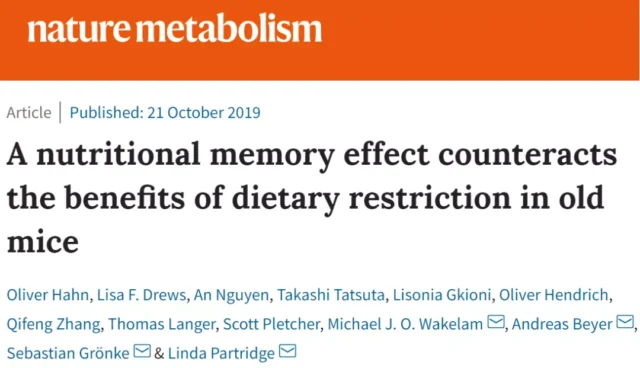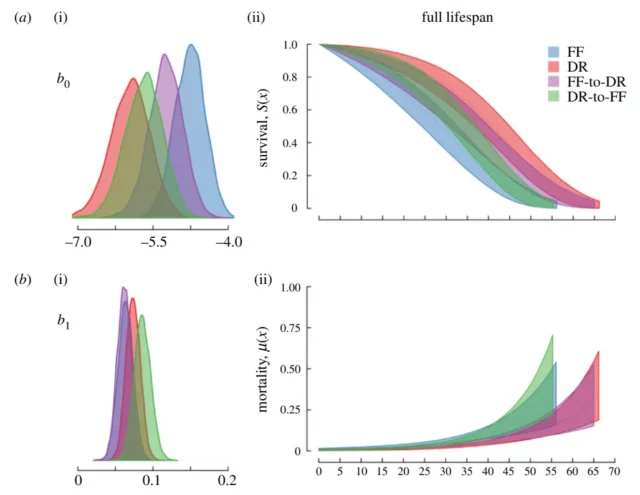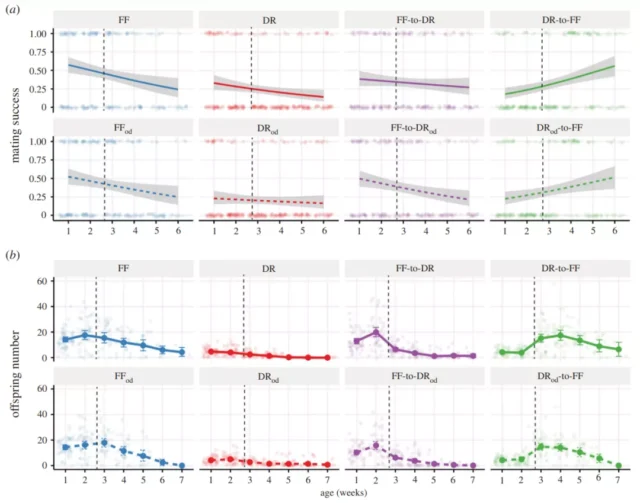You will live longer if eating less when you are young but fertility declines
- Normal Liver Cells Found to Promote Cancer Metastasis to the Liver
- Nearly 80% Complete Remission: Breakthrough in ADC Anti-Tumor Treatment
- Vaccination Against Common Diseases May Prevent Dementia!
- New Alzheimer’s Disease (AD) Diagnosis and Staging Criteria
- Breakthrough in Alzheimer’s Disease: New Nasal Spray Halts Cognitive Decline by Targeting Toxic Protein
- Can the Tap Water at the Paris Olympics be Drunk Directly?
You will live longer if eating less when you are young but fertility declines
- Should China be held legally responsible for the US’s $18 trillion COVID losses?
- CT Radiation Exposure Linked to Blood Cancer in Children and Adolescents
- FDA has mandated a top-level black box warning for all marketed CAR-T therapies
- Can people with high blood pressure eat peanuts?
- What is the difference between dopamine and dobutamine?
- How long can the patient live after heart stent surgery?
Studies have shown that You will live longer if eating less when you are young but fertility declines.
A recent study by the University of East Anglia in the United Kingdom showed that females who consume less food live longer, but their fertility is not as good as females who eat better .
With economic development and social progress, human life expectancy is getting longer and longer.
The ancients said that “life is rare in the past seventy years.” Today, the average life expectancy in our country has exceeded 70 years.
At the moment when life expectancy is getting longer and longer, people’s pursuit is not only to live longer, but also to live better, which is the so-called healthy life span .
An obvious improvement brought about by social and economic progress is that the vast majority of people no longer suffer from starvation, and even consider the problem of overnutrition.
In recent years, more and more studies have shown that reducing food intake, the so-called dietary restriction , will lead to longer life of many animals and improve human health.
Short-term fasting can even help cancer patients to enhance the treatment effect. .
However, due to ethical restrictions, few studies have focused on the relationship between human dietary restrictions and reproductive health .
In October 2019, the Linda Partridge team of the Max Planck Institute for Aging Biology in Germany and others published a paper in the journal Nature Metabolism [1] and found that mice began to reduce food intake and maintain them at a young age, and they lived longer and more. Healthy .
The mortality rate of mice with restricted diet in the early age will increase rapidly after changing to a casual diet when they are old, indicating that they will develop the habit of eating less when they are young and stick to it for a long time, which is beneficial to health and longevity.

On November 24, 2021, researchers from the University of East Anglia in the United Kingdom published a new research paper titled: Fitness benefits of dietary restriction [2] in the journal Proceedings of the Royal Society B: Biological Sciences .
The study found in the model animal fruit flies that females who consume less food throughout their lives live longer, but their reproductive ability decreases.
When they switch to an arbitrary diet, they mate and reproduce more and produce offspring that have been restricted diets.
3 times that of female fruit flies, and at the same time, their lifespan has become similar to that of female fruit flies that have been eating freely.
This shows that the reduction in reproduction caused by dietary restrictions early in life can be fully compensated by switching to a rich diet .

There have been many studies showing that dietary restrictions are related to the lifespan and health status of many organisms, including humans, but there are few studies on human dietary restrictions and reproductive health , mainly because such studies have ethical limitations.
Therefore, the research team used the model animal Drosophila to explore what happens when diet is restricted early in life, and what happens afterwards with arbitrary diet.
They studied the impact of dietary restriction in early life on the survival, mating behavior and reproduction of Drosophila.
The research team found that female fruit flies who restricted their diet early in life had better health conditions and higher survival rates, but reduced reproductive capacity.
Then when they switched from a restricted diet to an arbitrary diet, their mating and reproduction became more, and their survival rate became similar to that of female fruit flies that had been on an arbitrary diet.

These results indicate that females reproduce very little when they eat very little, but they maintain reproductive health, and when they start to have more food, they immediately begin to multiply .
This shows that the reduction in reproduction caused by dietary restrictions early in life can be fully compensated by switching to a rich diet .

In general, this study shows that changing from a restricted diet to a free diet is beneficial for future fertility .
These results also indicate that some methods suitable for humans should be used to further explore the impact of restricted diet on human fertility.
Paper link:
1. https://www.nature.com/articles/s42255-019-0121-0
2. https://royalsocietypublishing.org/doi/10.1098/rspb.2021.1787
You will live longer if eating less when you are young but fertility declines
(source:internet, reference only)
Disclaimer of medicaltrend.org
Important Note: The information provided is for informational purposes only and should not be considered as medical advice.



